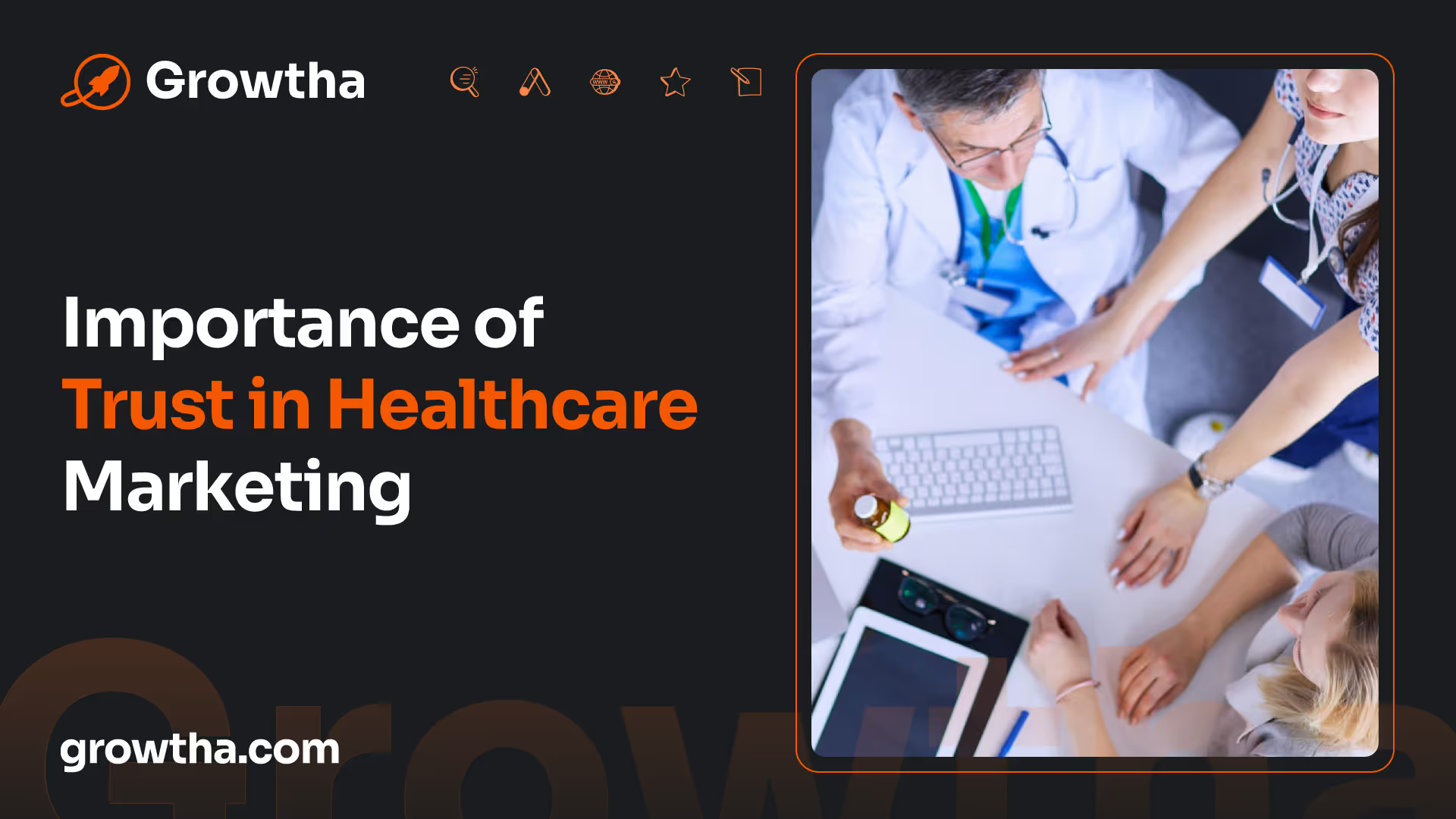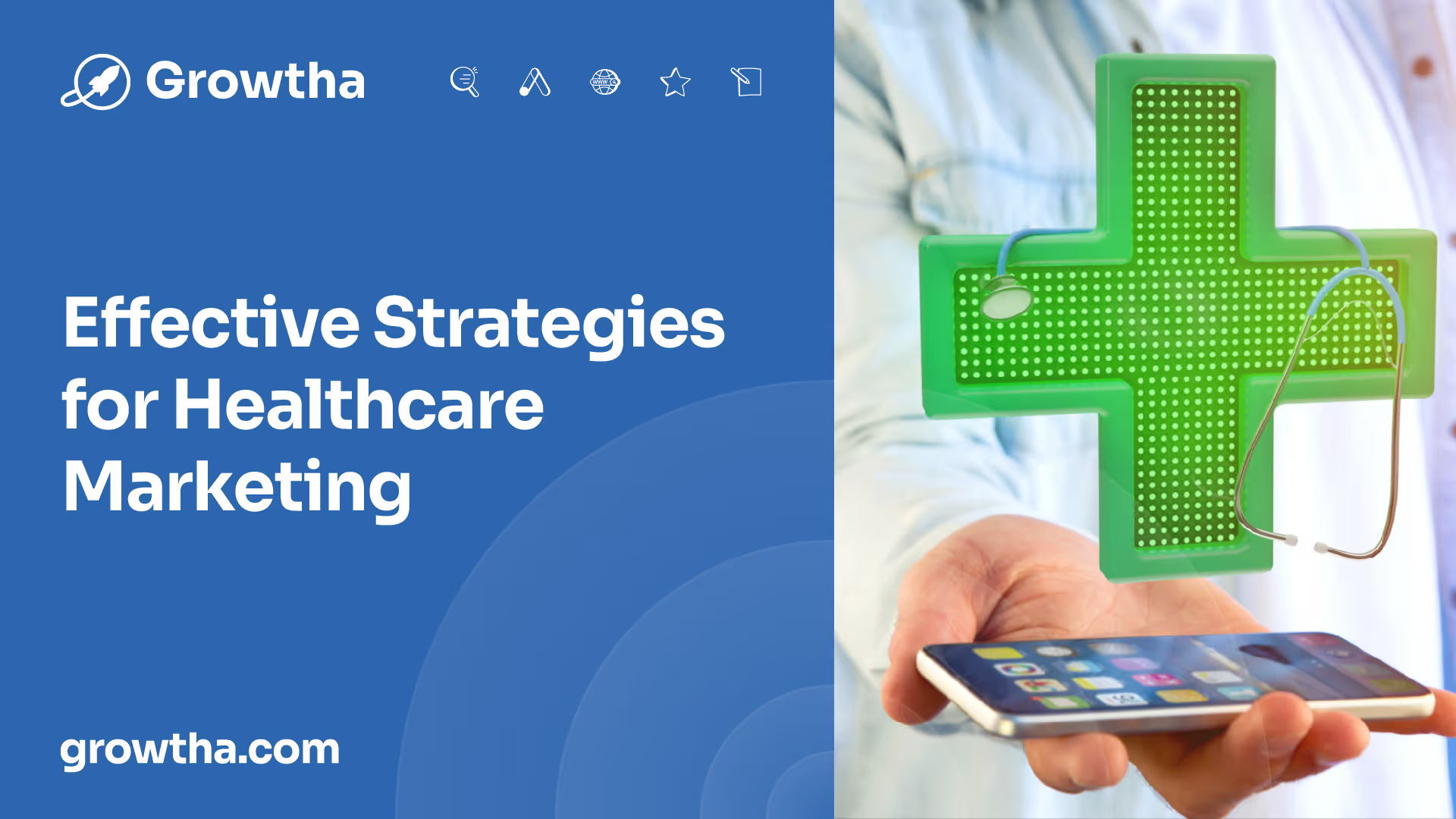Medical Practice Marketing Agency
To effectively navigate the complex world of healthcare marketing, it is important to understand the unique characteristics and impact of this specialized field.


Medical Practice Marketing Agency
Understanding Healthcare Marketing
To effectively navigate the complex world of healthcare marketing, it is important to understand the unique characteristics and impact of this specialized field. Healthcare marketing differentiates itself from traditional marketing by focusing on building relationships, providing education, and promoting sustainable healthcare outcomes. This section will explore the differentiation and impact of healthcare marketing.
Differentiating Healthcare Marketing
Unlike traditional marketing, which aims to create demand and generate revenue, healthcare marketing is purpose-driven and holds a real impact on people's lives. The primary goal of healthcare marketing is to create better patient experiences, engage with patients emotionally, and tailor messages to meet their unique needs for improved outcomes.
Healthcare marketing goes beyond simply creating desire for a product or service. It is focused on developing trust and relationships with patients, providing education and guidance throughout their healthcare journey. This approach involves engaging with patients on a personal level, creating value for them, and thinking long-term for better patient outcomes [1].
Impact of Healthcare Marketing
Healthcare marketing plays a crucial role in shaping patient experiences and driving positive outcomes. By providing valuable information and guidance, healthcare marketing helps patients make informed decisions about their healthcare needs. It empowers patients to take an active role in managing their health and encourages them to seek appropriate medical care when necessary.
Moreover, healthcare marketing has a significant impact on patient satisfaction and loyalty. When patients feel supported, educated, and valued by their healthcare providers, they are more likely to develop long-term relationships and trust in their medical professionals. Effective healthcare marketing strategies can foster these relationships and enhance patient loyalty, leading to improved patient retention and referral rates.
By focusing on patient-centric approaches and tailoring messages to address the unique needs of patients, healthcare marketing has the potential to improve health outcomes on a broader scale. It enables healthcare providers to reach and engage with individuals who may otherwise overlook important healthcare information or services.
Understanding the differentiation and impact of healthcare marketing is crucial for medical practices seeking to enhance their marketing efforts. By adopting purpose-driven strategies, tailoring messages to meet patient needs, and fostering trust and relationships, healthcare providers can create effective marketing campaigns that drive growth and ultimately improve patient outcomes.

Importance of Trust in Healthcare Marketing
Building trust is a crucial aspect of healthcare marketing. Unlike traditional marketing, which focuses on creating demand and generating revenue, healthcare marketing aims to develop relationships and promote sustainable healthcare. It involves attracting patients through education, guidance, and trust across various parts of the healthcare journey.
Building Patient Relationships
In healthcare marketing, building strong patient relationships is vital. By engaging with patients on a personal level, healthcare providers can create a sense of trust and understanding. This involves taking the time to listen to patient concerns, providing empathetic care, and fostering open communication.
By fostering a patient-centric approach, healthcare marketers can develop personalized experiences that cater to individual needs. This not only improves patient satisfaction but also promotes loyalty and encourages patients to become advocates for the medical practice.
Education and Long-Term Values
Healthcare marketing goes beyond creating desire; it focuses on providing education and guidance to patients. By offering valuable health information and resources, healthcare marketers empower patients to actively manage their health. This may include developing mobile apps, wearable devices, and online platforms that promote self-care, remote monitoring, and telemedicine.
By emphasizing long-term values, healthcare marketers can establish themselves as trusted sources of information and support. This can be achieved through educational campaigns, workshops, and online resources that address patients' needs and provide them with the tools to make informed decisions about their healthcare.
By prioritizing trust and patient relationships in healthcare marketing, medical practices can create meaningful connections, improve patient satisfaction, and drive better patient outcomes. Through personalized experiences, education, and long-term value, healthcare marketers can make a positive impact on people's lives and contribute to the overall well-being of their patients.

Effective Strategies for Healthcare Marketing
When it comes to healthcare marketing, implementing effective strategies is crucial to attract and engage potential patients. In this section, we will explore three key strategies: digital marketing essentials, targeted advertising methods, and patient engagement techniques.
Digital Marketing Essentials
In today's digital age, a comprehensive digital marketing strategy is essential for acquiring new patients for medical practices. Patients now use digital channels to research their conditions and choose physicians. Here are some essential elements of digital marketing for healthcare:
- Search Engine Optimization (SEO): Optimizing your website with relevant keywords and providing valuable content can improve your search engine rankings and visibility when potential patients search for healthcare services.
- Pay-Per-Click (PPC) Advertising: Google PPC Ads are an effective way to target potential patients actively researching conditions or seeking specific treatments. It is recommended to buy brand and physician names even if they already appear in the results.
- Social Media Marketing: Utilize social media platforms to engage with your audience, share educational content, promote your practice, and build relationships with potential patients. Facebook advertising, in particular, provides extensive reach and is a core part of any medical practice marketing campaign. Lookalike audiences can be used to find more patients that resemble current leads or patients.
- Online Reviews and Listings: Building out Google My Business listings, creating physician directory listings, and generating high-quality patient reviews are key strategies to generate more patient leads. Positive reviews and accurate information can enhance your online reputation and attract potential patients.
Targeted Advertising Methods
To effectively reach your target audience, implementing targeted advertising methods is essential. Here are some strategies to consider:
- Demographic Targeting: Identify the specific demographics of your ideal patient base, such as age, location, and interests. Tailor your advertising efforts to reach these specific groups through platforms like Facebook and Google Ads.
- Remarketing: Reach out to individuals who have previously interacted with your website or shown interest in your services. By displaying targeted ads to these individuals, you can reinforce your brand and encourage them to take further action.
- Geotargeting: If your medical practice serves a specific geographic area, utilize geotargeting to focus your advertising efforts on that region. This ensures that your ads are seen by individuals who are more likely to visit your practice.
- Content Marketing: Create informative and engaging content that addresses the pain points and concerns of your target audience. By providing valuable information, you can position your practice as a trusted resource and attract potential patients.
Patient Engagement Techniques
Engaging with patients is essential for building relationships, establishing trust, and fostering loyalty. Here are some effective patient engagement techniques:
- Educational Content: Craft compelling content that directly addresses patients' pain points and offers valuable information. Establish an omnichannel communications strategy to share content at scale, including stories that showcase expertise, past successes, and unique selling points. This can establish a powerful emotional connection with the intended audience.
- Social Media Interactions: Utilize social media platforms to engage with potential patients. Post educational content about health topics, share photos and videos of the practice and staff, run contests and giveaways, offer exclusive discounts, and respond to comments and messages to build relationships and position the practice as a trusted source of healthcare information [6].
- Networking and Referrals: Build relationships with other healthcare professionals to generate referrals and build trust with potential patients. Networking opportunities can include connecting with professionals in related fields, attending conferences, and following up with healthcare providers to support mutual referrals.
- Practice Management Systems: Utilize a practice management system to streamline patient information collection, appointment scheduling, billing, and payments. This system can improve the online presence of the practice through patient portals, scheduling forms, and online payment options. Additionally, it can facilitate more effective marketing campaigns through targeted communication with patients [6].
By implementing these effective strategies for healthcare marketing, medical practices can attract and engage potential patients, build trust, and establish a strong online presence in the highly competitive healthcare industry.
Navigating Healthcare Marketing Regulations
When it comes to healthcare marketing, navigating the regulatory landscape is of utmost importance. Healthcare marketers must adhere to various regulations to ensure compliance, protect patient privacy, and maintain the integrity of their marketing efforts. In this section, we will explore the importance of compliance with healthcare regulations and highlight key considerations for healthcare marketers.
Compliance with Healthcare Regulations
To create a successful healthcare marketing strategy, it is essential to familiarize oneself with relevant regulations such as the Health Insurance Portability and Accountability Act (HIPAA), the Federal Food, Drug, and Cosmetic Act (FD&C), and the Anti-Kickback Statute. Compliance with these regulations is critical to avoid penalties and maintain a positive reputation.
HIPAA sets the standards for protecting patients' sensitive health information. Marketers must ensure that patient data is handled securely and with utmost confidentiality. Any use of patient data for marketing purposes must comply with HIPAA regulations to protect patient privacy and maintain trust.
The FD&C Act regulates the marketing and promotion of healthcare products and services. Healthcare marketing materials must provide accurate, balanced, and scientifically backed information about the products and services being promoted. This ensures that patients receive reliable information while maintaining the integrity of the healthcare industry.
Key Regulatory Considerations
In addition to HIPAA and the FD&C Act, healthcare marketers should be aware of the Anti-Kickback Statute, which prohibits healthcare providers from offering, soliciting, or receiving any form of remuneration in exchange for patient referrals or the generation of business involving federal healthcare programs. This regulation impacts healthcare marketing by restricting certain types of financial relationships, incentives, and partnerships between healthcare providers and other entities.
When implementing digital marketing strategies, healthcare marketers must also consider the evolving landscape of compliance. Patient data has become a valuable asset in the digital age, but marketers must navigate HIPAA requirements and ensure patient data security to minimize the risk of breaches and maintain patient trust.
To navigate healthcare marketing regulations effectively, it is crucial to work with partners who understand and comply with the regulatory landscape. This ensures that the marketing strategies implemented are in line with HIPAA compliance and other relevant regulations. By prioritizing compliance, healthcare marketers can build trust with patients, maintain the integrity of their marketing efforts, and contribute to the overall well-being of the healthcare industry.
Benefits of Hiring a Healthcare Marketing Agency
When it comes to promoting and growing a medical practice, hiring a healthcare marketing agency can bring numerous benefits. These agencies provide professional expertise, budget management and optimization, as well as fresh perspectives and innovation. Let's explore each of these advantages in more detail.
Professional Expertise
A significant benefit of hiring a healthcare marketing agency is gaining access to skilled professionals who specialize in healthcare marketing strategies. Building an in-house digital marketing team can be impractical due to skill scarcity, cost, and fluctuating campaign needs [8]. By partnering with a healthcare marketing agency, medical practices can leverage the expertise of professionals who have in-depth knowledge of the industry and understand the unique challenges and opportunities it presents.
These professionals stay up to date with the latest trends, techniques, and best practices in digital marketing. They bring a wealth of experience from working with various clients in the healthcare field, allowing them to tailor strategies to meet the specific goals and objectives of each medical practice.
Budget Management and Optimization
Managing a marketing budget efficiently is crucial for medical practices. Healthcare marketing agencies excel in this area by effectively tracking spend across various platforms, optimizing campaigns, and allocating budgets to the most efficient strategies. They bring expertise, tools, and processes to streamline this complex process, ensuring that the marketing budget is utilized to its full potential.
With their knowledge and experience, healthcare marketing agencies can help medical practices make informed decisions about allocating resources to different marketing channels. By optimizing the budget, they ensure that the practice gets the maximum return on investment (ROI) from their marketing efforts.
Fresh Perspectives and Innovation
Partnering with a healthcare marketing agency brings the advantage of fresh perspectives and innovative ideas. These agencies work with a variety of clients and industries, allowing them to develop unique marketing techniques and strategies. They require their employees to undergo regular training on the latest digital advertising tools, ensuring that they stay ahead of the curve and employ the most effective marketing practices.
The diverse experience and exposure of healthcare marketing agencies enable them to think creatively and propose innovative solutions to enhance a medical practice's marketing strategies. They can provide a fresh outlook on branding, messaging, and outreach, helping the practice stand out in a competitive healthcare landscape.
By harnessing the professional expertise, budget management and optimization skills, as well as the fresh perspectives and innovation offered by healthcare marketing agencies, medical practices can benefit from strategic marketing efforts that drive growth and success. These agencies provide modern marketing solutions to help grow a medical practice's brand, including website design, search engine marketing, pay-per-click advertising, search engine optimization, content creation, and social media marketing [8].
Enhancing Medical Practice Marketing
To effectively promote and grow a medical practice, it is crucial to employ strategies that enhance the marketing efforts. In this section, we will explore three key areas of focus: website optimization strategies, utilizing chat functionality, and the importance of mobile responsiveness.
Website Optimization Strategies
Creating a well-optimized website is a fundamental aspect of medical practice marketing. It is essential to ensure that the website is easily discoverable by search engines and provides a user-friendly experience. Incorporating search engine optimization (SEO) techniques can help improve the website's visibility in search engine rankings. This includes strategically placing focus keywords in the title tags, URLs, and content, as well as providing comprehensive and authoritative information that answers the users' queries Intrepy.
Another crucial aspect of website optimization is building backlinks from external websites. Backlinks act as endorsements of the content's reliability and relevance, which can improve search engine rankings and build trust with search engines like Google.
Utilizing Chat Functionality
Incorporating chat functionality on a medical practice website can greatly enhance the user experience and patient engagement. Live chat or chatbot features allow visitors to ask questions, seek information, and receive immediate responses. This real-time interaction can help address patient concerns, provide guidance, and improve overall satisfaction.
By utilizing chat functionality, medical practices can demonstrate a commitment to excellent customer service and build trust with potential patients. Additionally, chat data can provide valuable insights into patient preferences and frequently asked questions, facilitating continuous improvement in service delivery.
Importance of Mobile Responsiveness
In today's digital landscape, having a mobile responsive website is essential for successful healthcare marketing. With mobile traffic accounting for approximately 50% of all website traffic, it is crucial to ensure that the website is optimized for mobile devices.
Mobile responsiveness involves designing a website that adapts and displays correctly across various screen sizes and devices. A mobile-friendly website not only provides a seamless user experience but also aligns with Google's indexing and search result prioritization. Google prioritizes mobile versions of websites, which can significantly impact the website's visibility in search engine results.
By prioritizing website optimization strategies, incorporating chat functionality, and ensuring mobile responsiveness, medical practices can enhance their marketing efforts, attract more patients, and provide an exceptional online experience. These strategies, when implemented effectively, contribute to the overall success and growth of the medical practice.
References
[1]: https://www.inl-agency.com/healthcare-marketing-vs-traditional-marketing-what-sets-them-apart/
[2]: https://levohealth.com/navigating-the-challenges-of-healthcare-marketing-in-a-highly-regulated-industry/
[3]: https://silverlinecrm.com/blog/healthcare/provider/the-traditional-vs-modern-healthcare-marketer-6-key-differences/
[4]: https://runneragency.com/blog/ways-to-attract-new-patients-to-your-practice/
[5]: https://www.rrd.com/resources/blog/navigating-marketing-challenges-in-the-highly-regulated-healthcare-industry
[6]: https://www.ambula.io/how-to-attract-new-patients-to-your-medical-practice/







